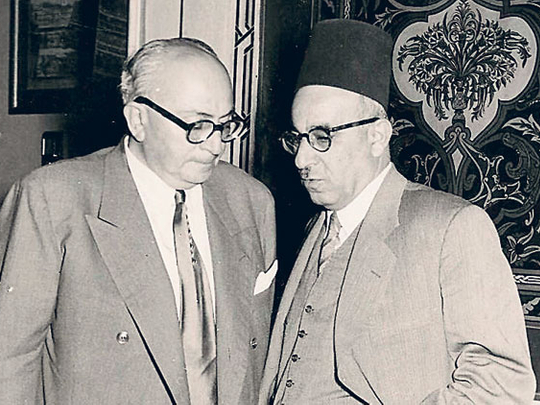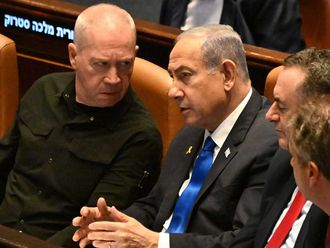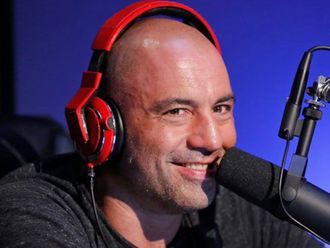
Damascus: Syria has increasingly been reconnecting with its past and historical figures who have largely been persona non grata in the past few decades.
Radwan Atassi, the grandson of former president Hashem Al Atassi and a historian of modern Syria, says this change could be attributed to a number of recent developments.
“The government is no longer passive about that period of history as five decades have already passed,” Atassi told Gulf News.
“Reconnecting also creates an identity for Syrians to build on and the new generation under the age of 50 has renewed interest in learning about their modern history which for a period of many years became unknown to most Syrians.”
“Whereas the past used to be looked upon as grim, a new phenomenon is occuring where it is being romantisised as if it had no shortcomings or mistakes, which was not the case at all.”
Openness
Syria saw 20 coup plots since 1949, nine of which succeeded, and 11 brought their architects to the gallows or a life in exile or in prison. In 1970, Hafez Al Assad took over in a bloodless coup and his son Bashar Al Assad has ruled since his death.
However, a new policy of opennness, which began to take shape in 2000 under Bashar Al Assad, has allowed Syrians to reconnect with this past any reference to which had largely been treated as taboo.
Earlier this year, Colonel Abdul Karim Zahr Al Deen, the Chief of Staff of the Syrian Army during the era of President Nazem Al Qudsi (1961-1963), died in Damascus at the age of 97.
His death was noticeably covered in all three state-run dailies and in the official Syrian Arab News Agency (Sana) although the man had been sidelined from political life since the Baath Party revolution of 1963 for having supported and legalised the break-up of the Syrian-Egyptian Union.
A few days later, former President Ameen Al Hafez, who ruled in 1963-1966 and then defected to Iraq — where he lived as a fugitive under Saddam Hussain for three decades — died at the age of 89 and was given a presidential funeral at his hometown in Aleppo in northern Syria.
The ageing former president had been sentenced to death by Syrian courts in the late 1960s but was pardoned by Bashar Al Assad in 2003 and was welcomed back to Syria, where he was granted a pension, home, and the full honours of a former head of state.
In the 1980s people avoided public mention of pre-Baath or early Baath figures. But in 1987, novelist Colette Khoury, an independent MP in the Syrian Parliament (now a presidential adviser on literary affairs) published the memoirs of her grandfather Fares Al Khoury, a prime minister from the 1940s who had led the independence struggle against the French Mandate.
A variety of TV series then followed, all set against the backdrop of 1950s Syria, alluding to political events and figures that although strongly present in the minds of Syrians, were absent from public discourse.
One was Hamam Al Qishani, a five-part television drama produced in the 1990s that brought historical figures like ex-president Hosni Al Za'im and ex-prime minister Khalid Al Azm, to the silver screen and discussed the history of political parties long disbanded in Syria like the People's Party, the National Party, and the Muslim Brotherhood.
Currently, a scriptwriter is preparing a 30-episode drama about former President Hashem Al Atassi, while Al Atassi's grandson authored a book about his life and three eras at the Presidential Palace (all before 1963) that was published, promoted and sold in Syria.
At the main entrance of the People's Assembly (Syrian Parliament) an assortment of photographs now decorates the historic building, with photos of every parliament speaker since 1919, including traditionally unpopular ones like Anwar Sadat, who had been speaker of the joint Syrian-Egyptian parliament during the union years (1958-1961).
The Friends of Damascus Society now organises public lectures about pre-Baath figures regularly at the Assad National Library and, last year, the economic magazine Al Iqtisadi hosted a lecture at Damascus University about Khalid Al Azm, a former prime minister and an architect of the Syrian economy, who had been toppled from office and exiled to Beirut by the Baath Party in 1963.
Harmony
More recently, Al Azm's three-part memoir, banned for over four decades, was allowed to be sold freely at Syrian bookstores.
In 2004, a website, Syrianhistory.Com, made headlines in Syria, being an online museum of photos, speeches, and documents of 20th century Syria, with emphasis on the pre-Baath era that was described as "founding years of the Syrian Republic".
In 2009, a private TV station aired a 175-episode serial called Zakiratuna about key figures who had once been ‘off-limits' in Syria, including the entire political class that had been in power prior to the Baathists.
Nowhere was harmony with Syria's past better mirrored than during the celebrations on April 17 of the 64th anniversary of Syrian independence from the French Mandate.
Syrian websites were filled with photos, speeches, and newspaper clippings from the 1930s and 1940s, while private Syrian radio stations broadcast speeches of former leaders like Fakhri Al Barudi, Sa'adallah Al Jaberi, and Shukri Al Quwatli.
A group of private individuals headed by Abdullah Khani, the secretary-general of the presidential palace in 1940s and 1950s, visited t he grave of former president Al Quwatli and former prime minister Al Khoury to pay homage on the occasion, describing them as the "Fathers of Independence."
Flashback: Baathists' origin
In early 1943, two young Paris-trained Sorbonne University graduates, Michel Aflaq (33) and Salah Al Bitar (31) applied for a licence from the French Mandate to establish a political party in Syria, called Al Baath Al Arabi (The Arab Renaissance).
Having studied in Paris during the interwar years, the two men were greatly influenced by the secular nationalism that vibrated through Europe and hoped to establish something similar in their native Syria, which since 1920, had been under the French Mandate. Their new party preached secularism, unity of the Arab world, and emancipation from colonial rule.
In 1946, Syria won independence from France and Aflaq and Al Bitar eceived government approval to establish a political party during the nationalist regime of President Shukri Al Quwatli.
During the military regime of President Adib Al Shishakli (1951-1954) the Baath founders were persecuted for their views and exiled to Lebanon where they teamed up with Akram Al Hawrani, a charismatic socialist leader and MP from the city of Hama, whose Arab Socialist Party merged in with the Baath. The new party, which placed increased emphasis on revolutionary socialism and reached out to the working class, was re-named the Arab Baath Socialist Party, a name that exists until today, 60-years later.
In 1958, Al Bitar and Al Hawrani negotiated the Syrian-Egyptian union, willingly dissolving their party to satisfy the political conditions of Egyptian President Jamal Abdul Nasser. A coalition of Nasserists and committed Baathist officers seized power in Syria in a bloodless revolution on March 8, 1963, pledging to restore the United Arab Republic, which had been dissolved by a Syrian coup in 1961.
A Revolutionary Command Council (RCC) based on the Egyptian model was established, headed by the new Baathist head of state, General Ameen Al Hafez. Co-founder Al Bitar became premier while Alfaq remained secretary-general of the Baath. During this period the famous land re-distribution laws were issued and all private enterprises were nationalised.
In November 1970, three years after the War of 1967, Defence Minister Hafez Al Assad, a Baathist since the 1960s, came to power through a bloodless coup, passing a new constitution that designated the Baath as the "ruling party of state and society".












